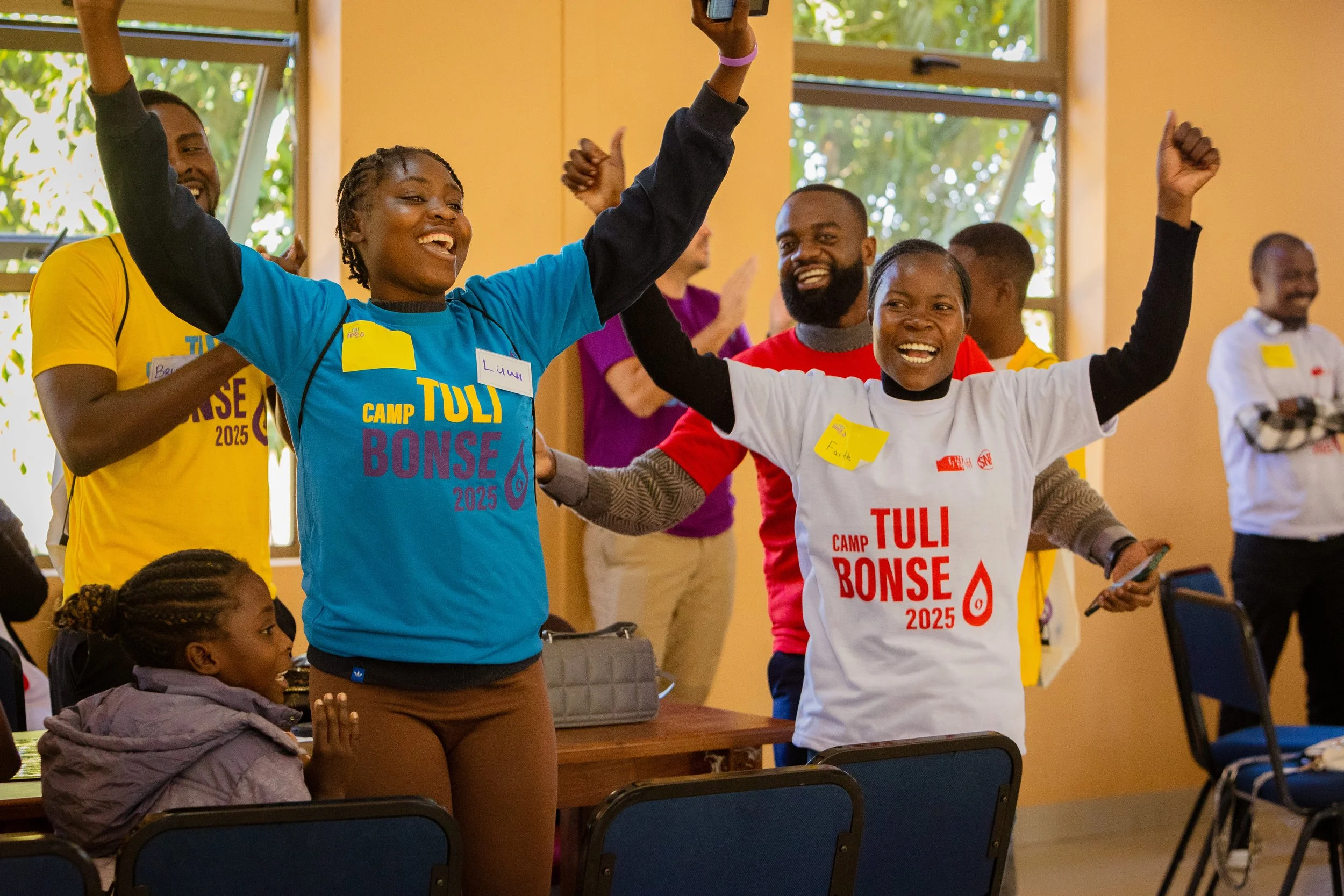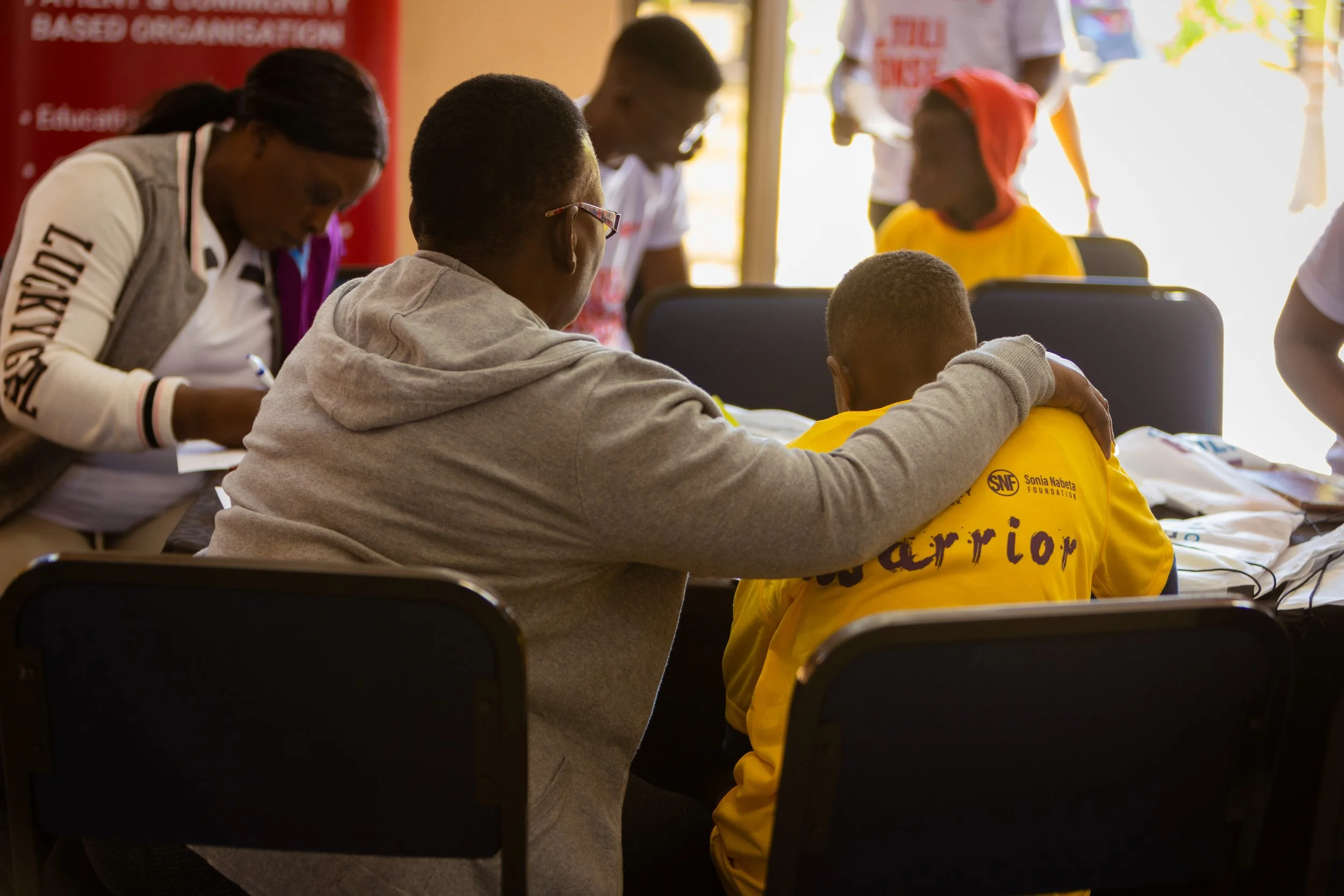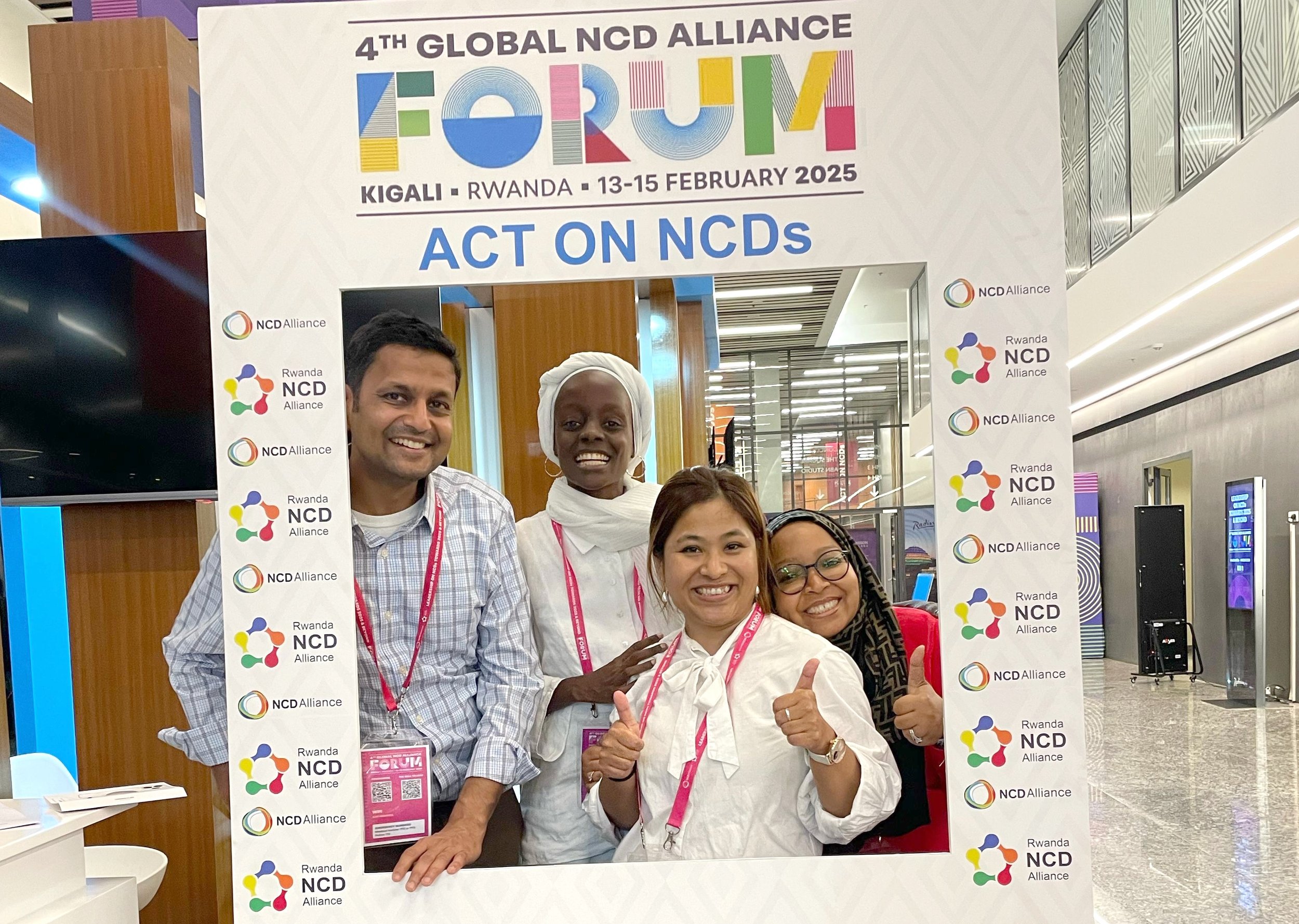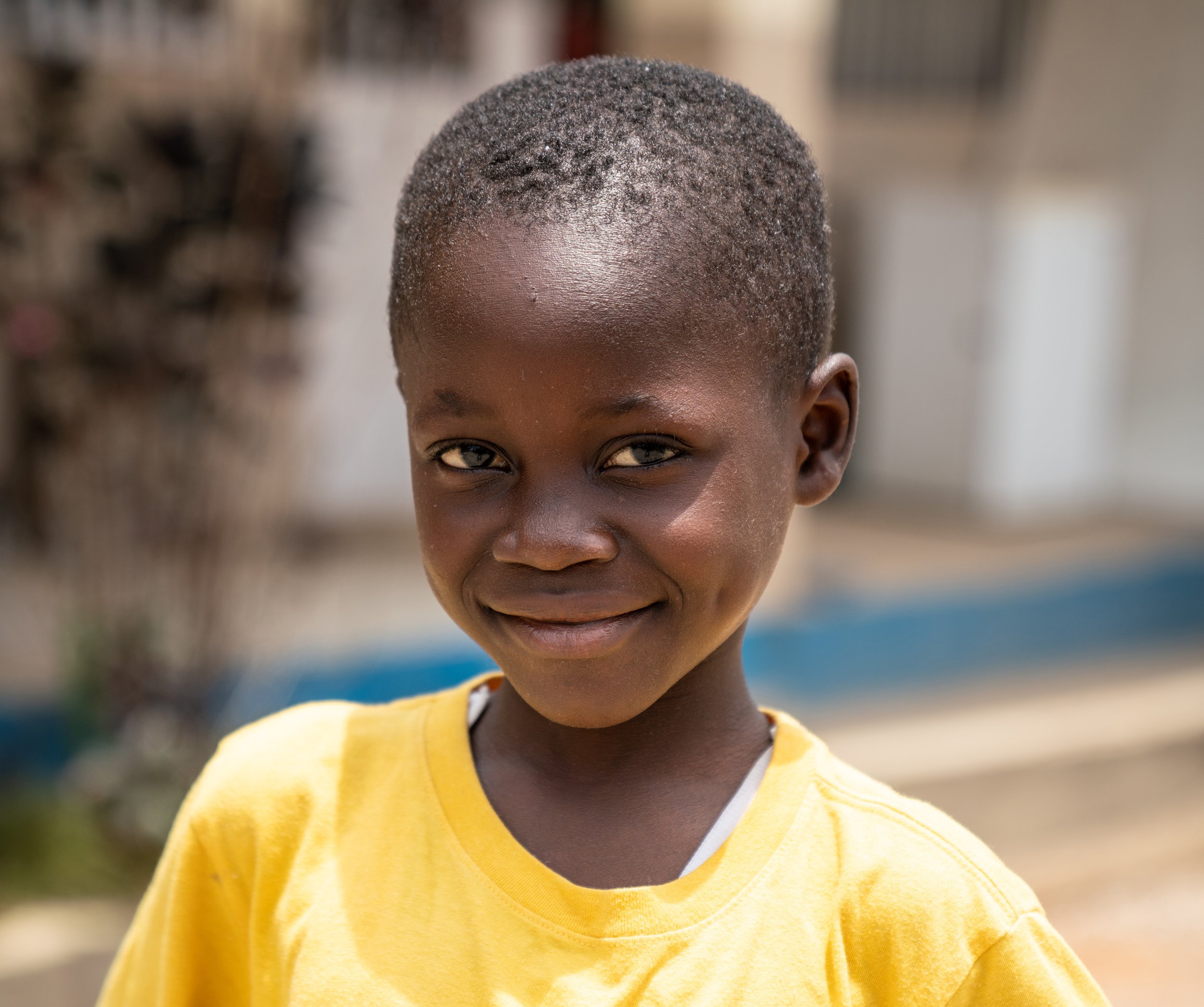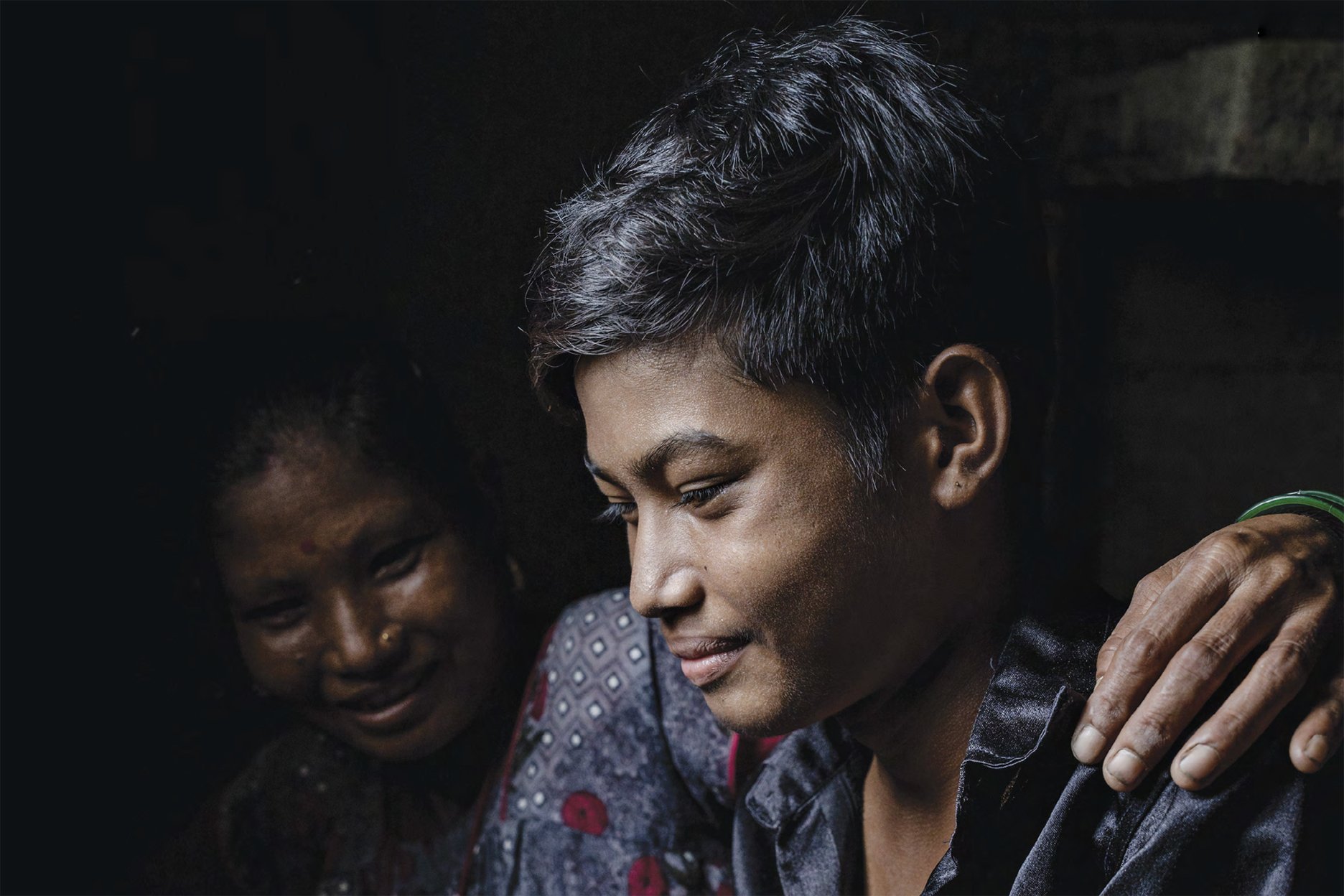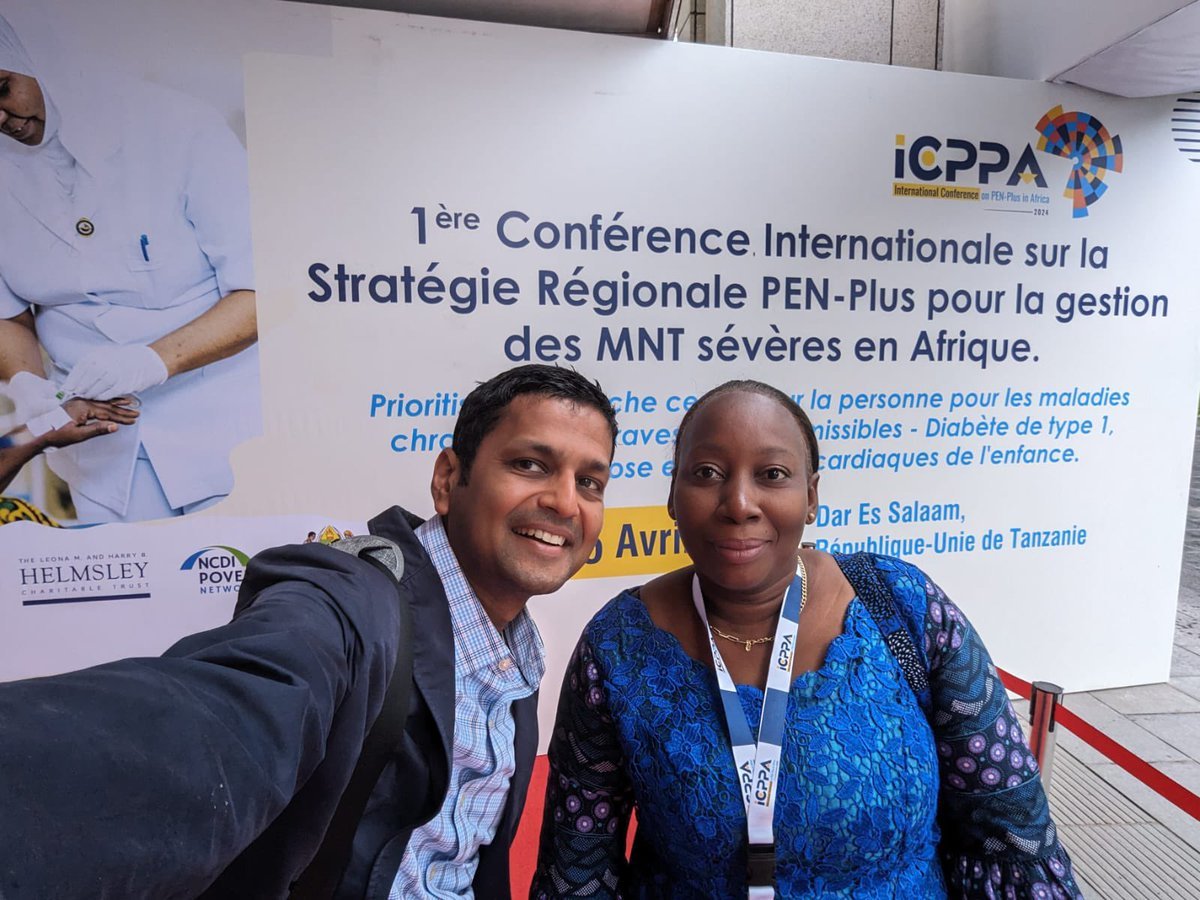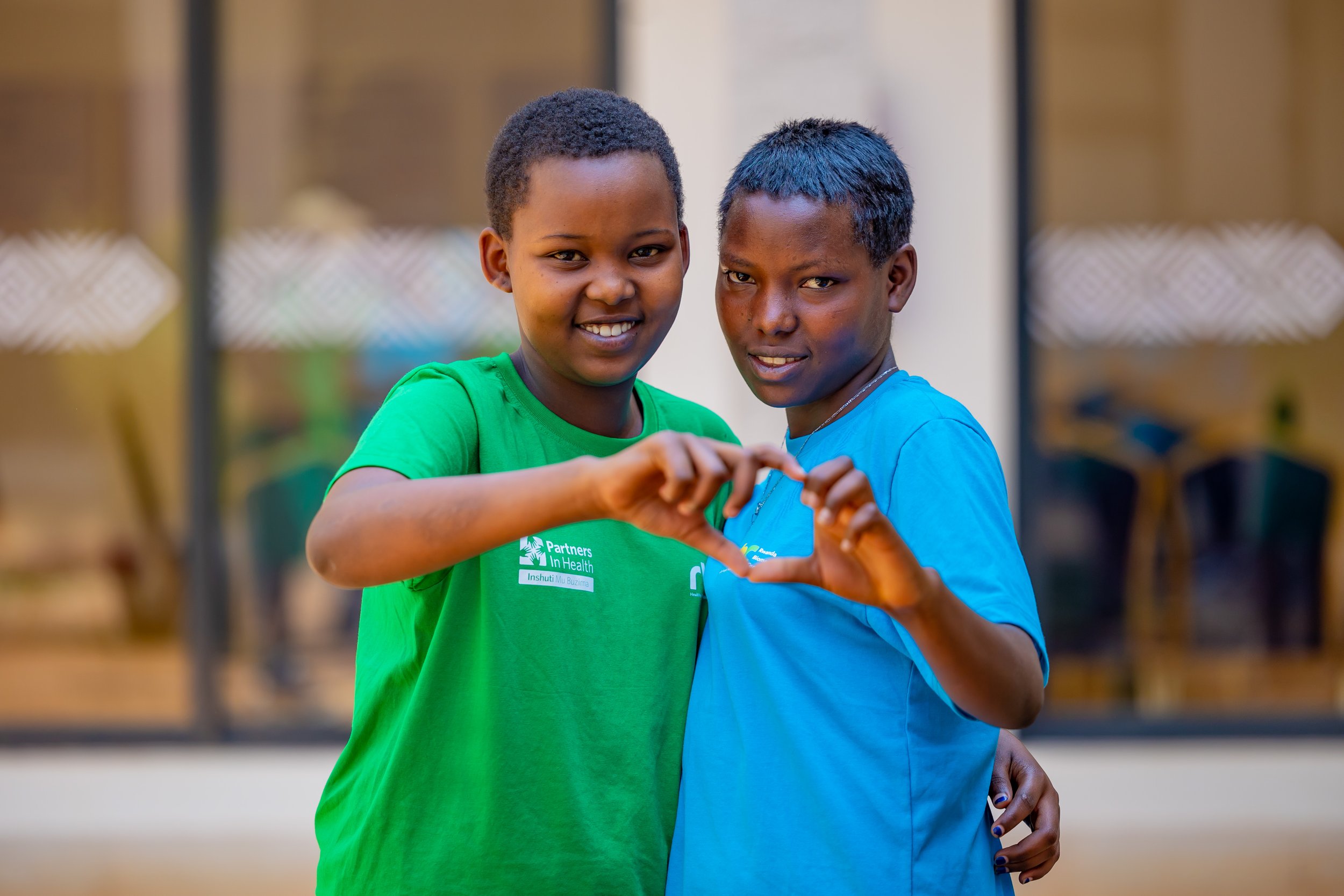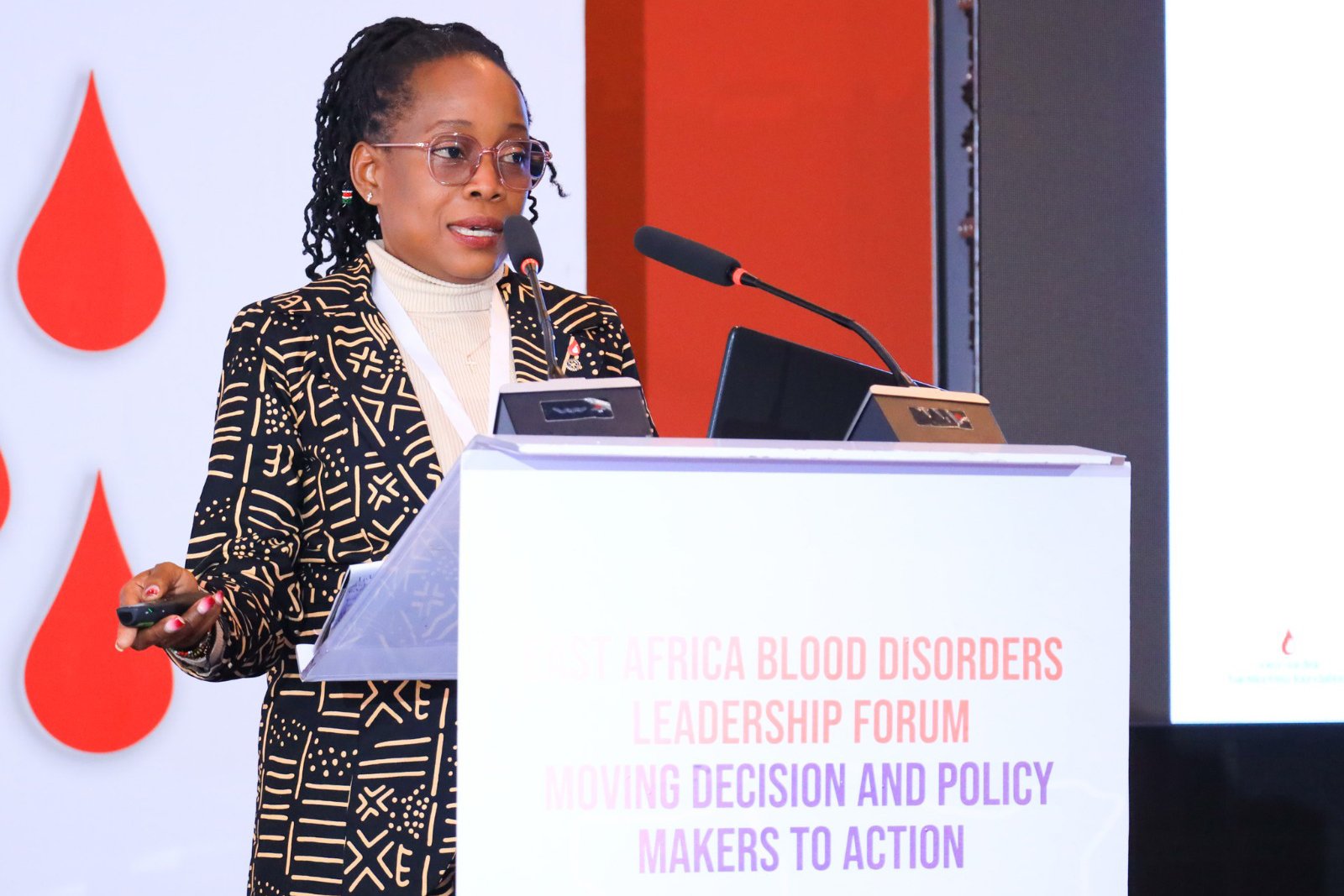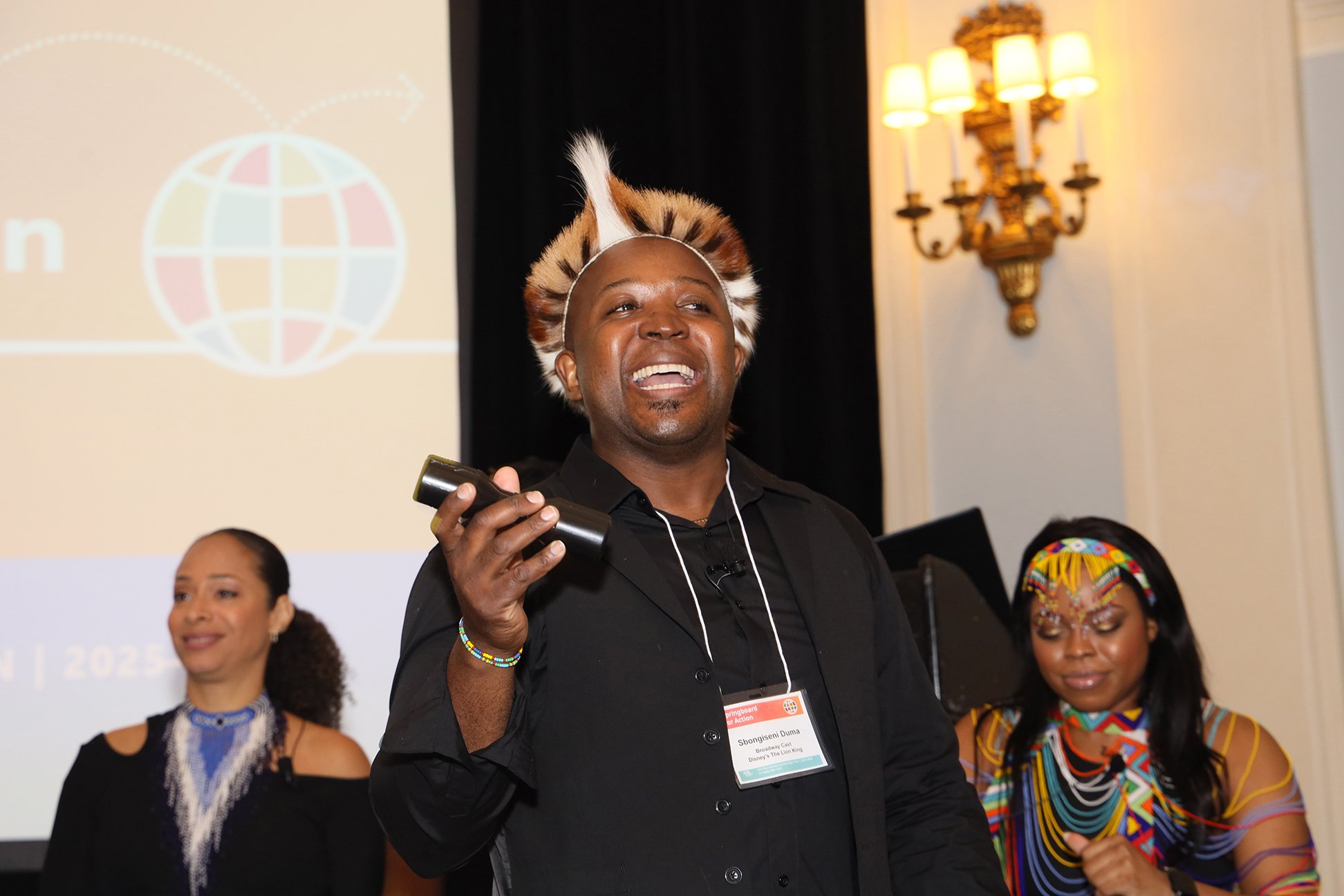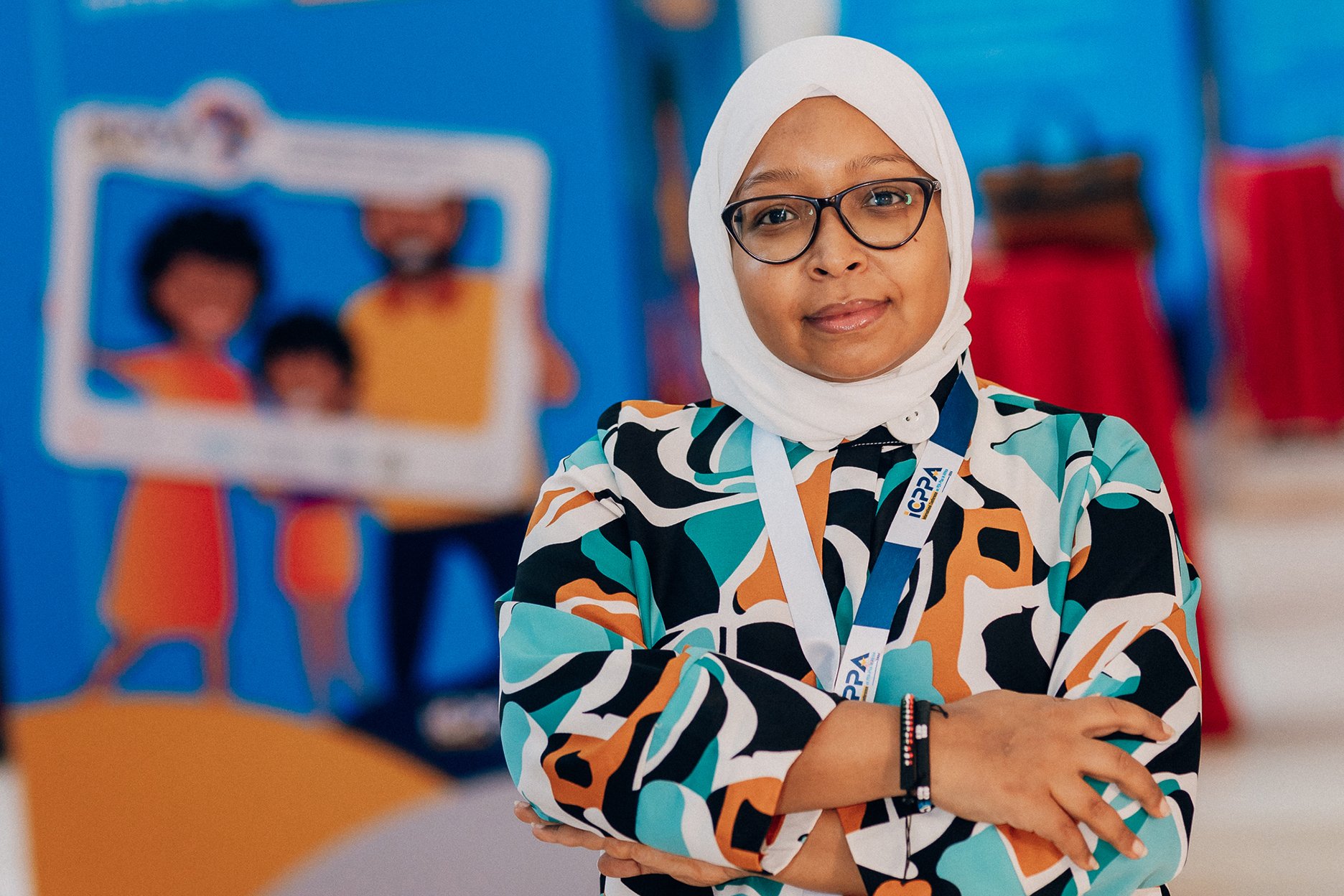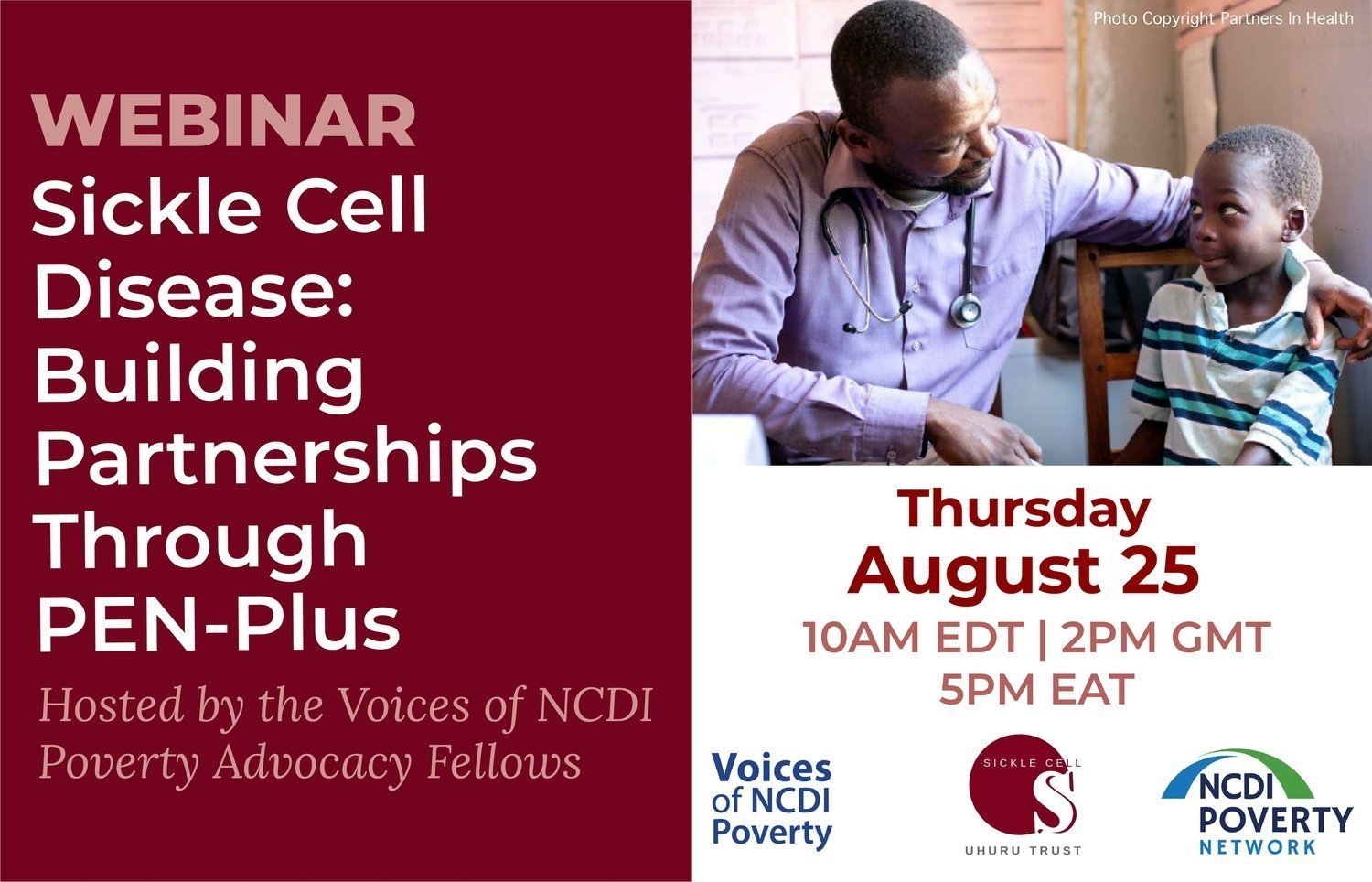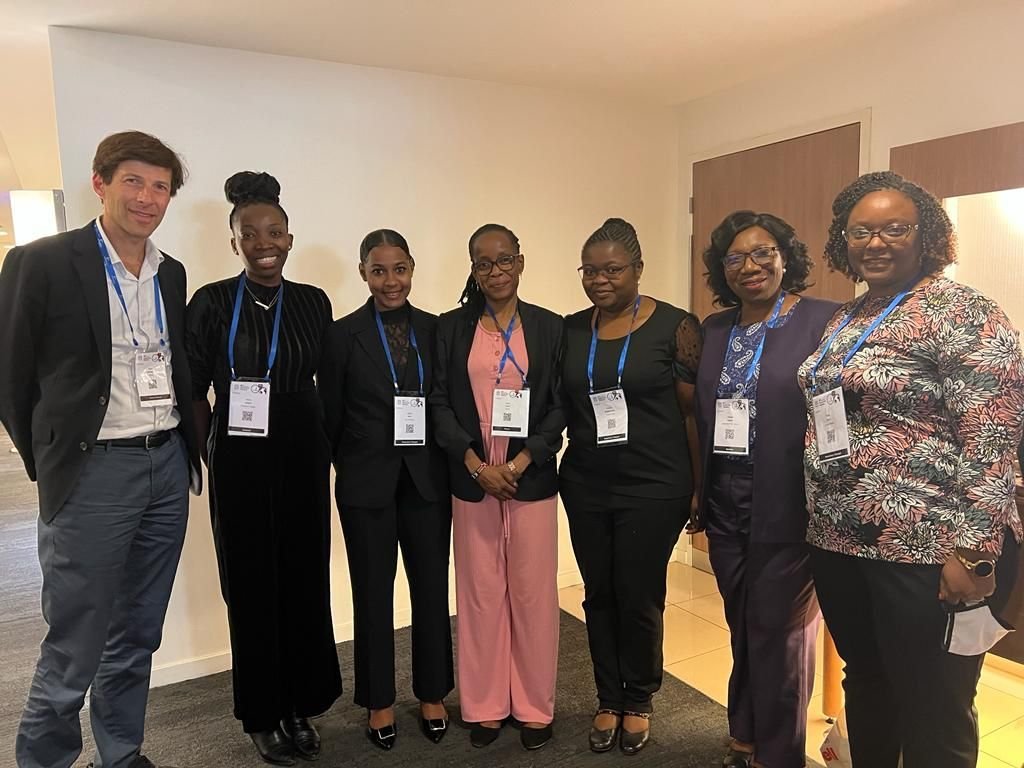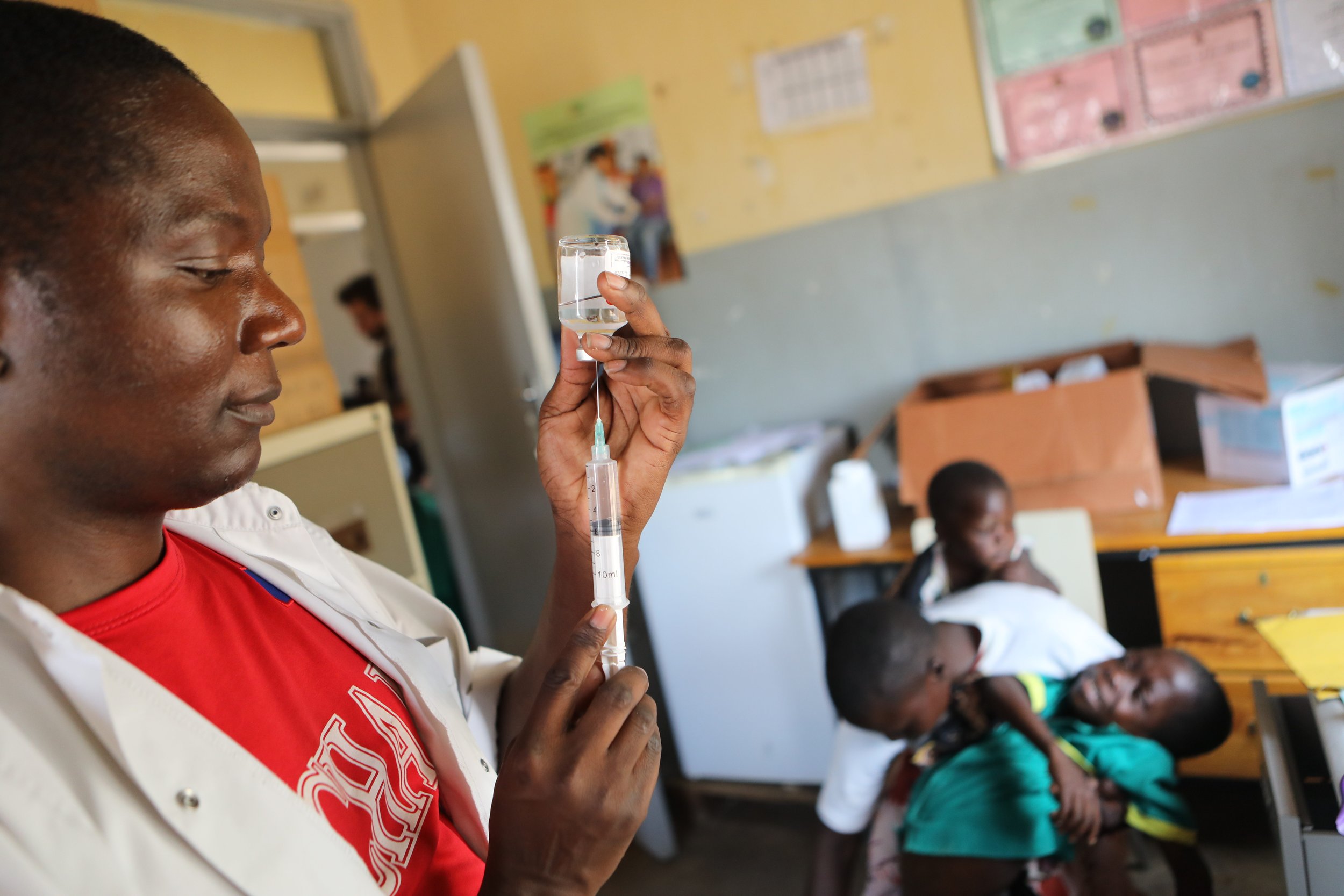
Sickle Cell Disease
PEN-Plus for People Living with Sickle Cell Disease
Every day in Africa as many as one thousand children are born with sickle cell disease. Without access to treatment, half of them will die before their fifth birthday. This tragedy is as medically unnecessary as it is morally unconscionable.
To address this gap in care, the NCDI Poverty Network works with two dozen resource-limited countries around the world to implement PEN-Plus, a proven integrated-care delivery model for severe, chronic noncommunicable diseases such as sickle cell disease, type 1 diabetes, and childhood heart diseases. For those with sickle cell disease, for example, PEN-Plus clinics provide specialized care close to home; hydroxyurea, a medicine that makes red-blood cells less likely to sickle; and money for food and transportation.
“When my children are sick, there is nothing I can do but stay home and care for them. If they are sick and I cannot work, I can hardly find food for us. PEN-Plus helps so much, especially with medicine and financial support. Without this treatment, I don’t think my children would be alive now.”
—Zoine Chiwaula, mother of Loyida and Fortune, teens living with sickle cell disease in Malawi
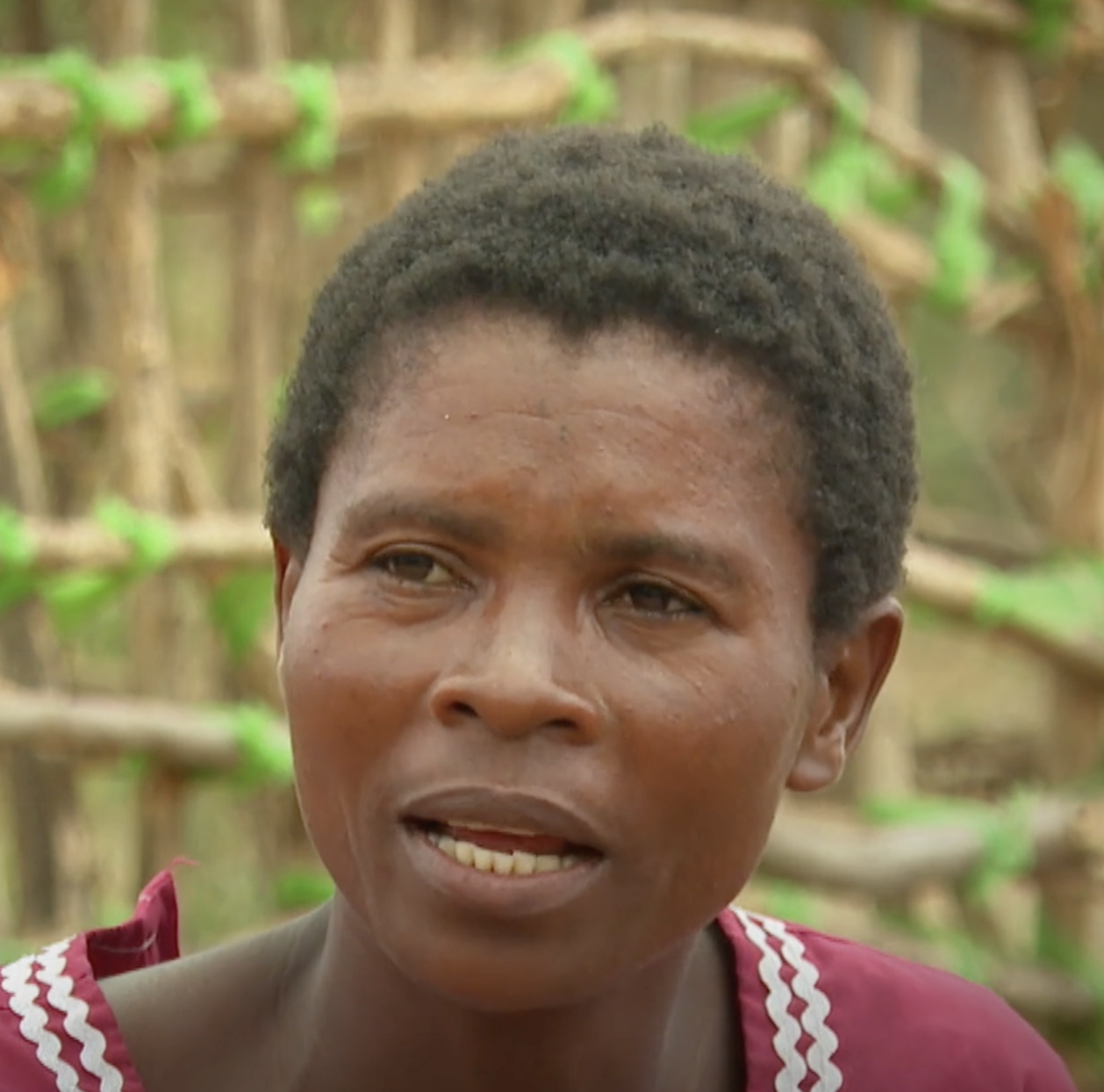
Meet Loyida and Fortune, Teens Living with Sickle Cell Disease in Rural Malawi
Sickle Cell Disease Updates
With peer support having proved to be a key component of PEN-Plus care, the NCDI Poverty Network is developing an integrated training program for peer educators. “We’ve seen beautiful examples of young people who are unafraid to speak boldly about their condition, to be advocates, to be champions,” said Dr. Colin Pfaff, the Network’s associate director of programs. “They are living successful lives and are examples to others, which has such a powerful impact.”
Photos from the weeklong camp show joy, education, and empowerment, as young people living with type 1 diabetes or sickle cell disease shared experiences, learned about managing their health and, above all, discovered they were not alone.
Camp Tuli Bonse, an integrated summer camp, will bring together about 60 children, adolescents, and young adults living with either type 1 diabetes or sickle cell disease for a week of health education, support, solidarity, and fun in Chongwe, Zambia, from August 18 to 22.
The second International Conference on PEN-Plus in Africa (ICPPA 2025) will convene on July 8–10 in Abuja, Nigeria, with virtual participation available to healthcare professionals, researchers, and policymakers worldwide.
The NCDI Poverty Network has submitted proposals to the World Health Organization suggesting it add analogue insulins and a triple fixed-dose antihypertensive medicine combination to its Model List of Essential Medicines. The Network has also proposed that WHO reclassify hemoglobinopathies to shine more of a spotlight on sickle cell disease and thalassemias.
The NCDI Poverty Network’s recent week of advocacy in Rwanda included visits to two hospitals, a conference with more than 700 attendees, a panel with four expert speakers, and one recurring theme: the recognition that PEN-Plus is an effective model for mobilizing action and financing to increase access to care for people living with severe, chronic noncommunicable diseases.
Eight-year-old Amza Musa receives free treatment for his sickle cell disease at the PEN-Plus clinic at Koidu Government Hospital in eastern Sierra Leone.
The NCDI Poverty Network—through one of its co-secretariats, the Center for Integration Science in Global Health Equity at Brigham and Women’s Hospital—has joined UNICEF in publishing a report on the burden on noncommunicable diseases on children, adolescents, and young adults in South Asia.
The NCDI Poverty Network has published a French edition of PEN-Plus Clinical Tools and Programmatic Standards, a document that defines the diagnostic, treatment, and patient support services that compose PEN-Plus. Several francophone countries have already initiated PEN-Plus.
Camps that bring together young people living with a severe noncommunicable disease are showing that the benefits of integrated care can extend far beyond clinical settings. The first such camps—held this year in Rwanda and Zimbabwe—hosted young people with type 1 diabetes, sickle cell disease, and childhood heart disease.
During the East Africa Blood Disorders Leadership Forum, held in Nairobi in late October, Eunice Owino, a Voices for PEN-Plus advocate, spoke about her experiences living with sickle cell disease.
The PEN-Plus Partnership Strategic Plan (2025–2028) had its official launch at Springboard for Action, an event celebrating progress toward global access to care for people living with severe, chronic noncommunicable diseases. The NCDI Poverty Network hosted the event in New York City in September on the sidelines of the 79th Session of the U.N. General Assembly.
In Springboard for Action, a PEN-Plus celebration held in September on the sidelines of the 79th Session of the U.N. General Assembly, leaders from the World Health Organization’s Regional Office for Africa, UNICEF, and Nigeria’s Ministry of Health and Social Welfare all expressed their commitment to PEN-Plus. The event also featured a performance by the Broadway cast of Disney’s The Lion King.
The Network has published PEN-Plus Clinical Tools and Programmatic Standards, a document aimed at informing clinic planning, budgeting, and operations by providing a crisp definition of PEN-Plus clinical care, including the diagnostic, treatment, and patient support services available.
In recognition of World Sickle Cell Day on June 19, a Lancet Haematology editorial cited both PEN-Plus and the first International Conference on PEN-Plus in Africa as initiatives that can help ensure improved access to diagnosis, treatment, and care for people living with sickle cell disease in low- and middle-income countries.
The PEN-Plus clinic in eastern Uganda began as a gathering under a tree and has blossomed into a standalone structure with consultation and treatment rooms, a training center, and a pharmacy.
Following the International Conference on PEN-Plus in Africa, the NCDI Poverty Network hosted the first Voices for PEN-Plus Advocacy Summit. The event, held in Dar es Salaam, Tanzania, on April 26, brought stakeholders together to brainstorm ideas for increasing the scope and effectiveness of advocacy initiatives.
In advance of the International Conference on PEN-Plus in Africa, the NCDI Poverty Network team compiled research resources on PEN-Plus and other integrated-science healthcare delivery models.
NCDI Poverty Network researchers recently published a scoping review of models of care for people with sickle cell disease in low-income and lower-middle-income countries. Their findings confirmed the care limitations the Network has been seeking to overcome through the implementation of the PEN-Plus model.
Over 400 people came together on 1 October to advocate for the needs of people living with sickle cell disease in Chhattisgarh State in central India.
“Tawonashe is exactly the kind of patient for whom PEN-Plus was designed,” said Dr. Alvern Mutengerere, project manager for noncommunicable diseases at SolidarMed, the implementing partner for the PEN-Plus clinic in Masvingo.
The NCDI Poverty Network has produced “Language Matters,” a primer intended to sensitize PEN-Plus providers to the communication nuances involved in caring for people living with severe, chronic noncommunicable diseases.
“We’re called sickle cell warriors because we’re fighters,” says Eunice Owino, a sickle cell warrior from Kenya. “Even though we experience excruciating bouts of pain, we can overcome.”
More than 60 clinical experts, civil society members, people living with sickle cell disease (SCD), and NCD advocates from around the world came together on 25 August 2022 to discuss the burden and barriers of accessing care delivery for SCD in rural areas.
A team that included NCDI Poverty Network Co-Chair Dr. Gene Bukhman, Voices Advocacy Fellow Eunice Owino, and Advocacy & Training Associate Lauren Brown traveled to Paris in June to represent the Network and promote PEN-Plus at the 4th Global Congress on Sickle Cell Disease.

